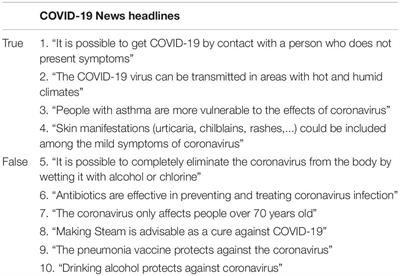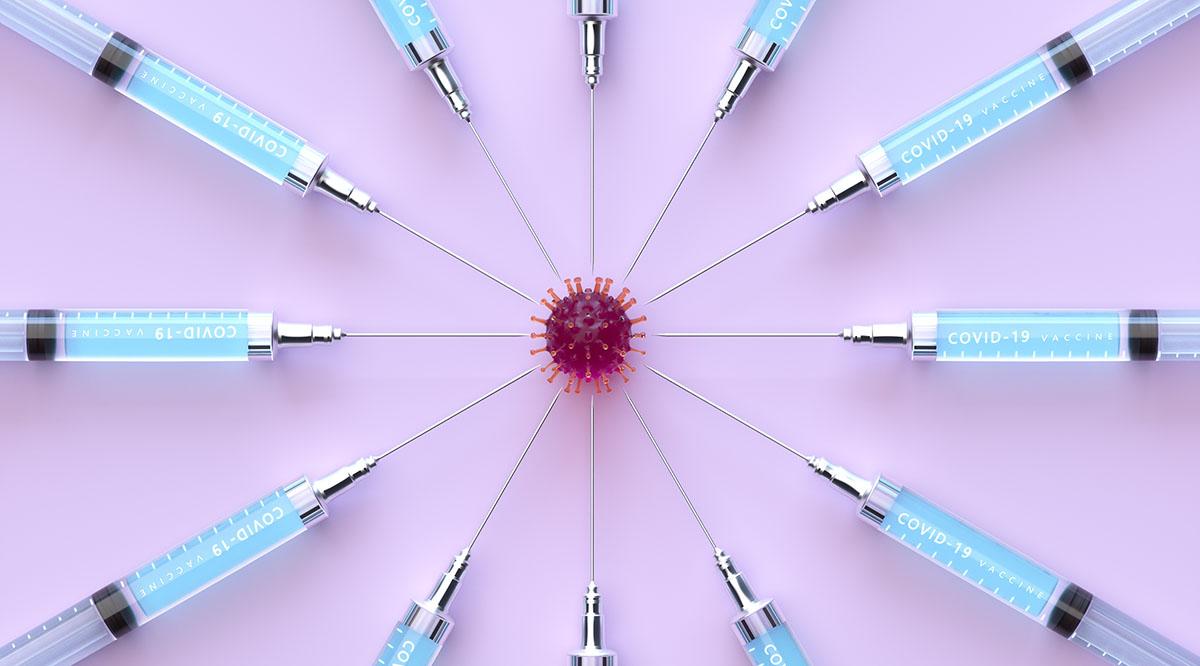As an Amazon Associate, I earn from qualifying purchases at no extra cost to you.
Discover the Truth: Does Covid Vaccine Prevent Transmission?
Yes, the Covid vaccine does prevent transmission. The Covid vaccine effectively stops the spread of the virus.
The Covid-19 pandemic has caused widespread devastation and has impacted every aspect of our lives. However, the development of vaccines has provided hope in the fight against this deadly virus. One important question that arises is whether the Covid vaccines can prevent the transmission of the virus.
Recent research and studies have shown that the Covid vaccines not only protect individuals from developing severe illness but also significantly reduce the risk of transmission. This means that by getting vaccinated, individuals not only protect themselves but also contribute to the larger effort of stopping the spread of the virus within communities. We will delve deeper into the efficacy of the Covid vaccines in preventing transmission and discuss the implications of this breakthrough in our battle against the pandemic.
Heading 1: Understanding Covid Transmission
The spread of Covid-19 has become a global concern, with scientists and health experts working tirelessly to understand how this virus is transmitted. By understanding how the virus spreads, we can implement effective prevention strategies. In this article, we will explore the various modes of transmission, the risk factors involved, and most importantly, whether the Covid vaccine can prevent transmission. Let’s begin by examining how Covid spreads.
The primary mode of transmission for Covid-19 is through respiratory droplets. When an infected individual coughs, sneezes, talks, or breathes heavily, tiny droplets containing the virus are released into the air. These droplets can then be inhaled by someone in close proximity to the infected person or land on surfaces, where they can survive for a certain period of time. It is important to note that Covid can also spread via aerosols, which are smaller particles that can linger in the air for longer periods.
Additionally, direct contact with contaminated surfaces or objects can also lead to transmission if the virus is then transferred to the eyes, nose, or mouth through touching. It is believed that close contact with an infected person, typically defined as being within six feet, poses a higher risk of transmission, especially in indoor settings with poor ventilation. Now that we have a clearer understanding of how Covid spreads, let’s explore the risk factors associated with transmission.
Several factors contribute to the risk of Covid-19 transmission. These can include:
- Close contact with an infected individual, particularly in crowded environments or enclosed spaces with inadequate ventilation.
- Extended exposure to respiratory droplets or aerosols containing the virus, especially in settings where individuals are talking, singing, or engaging in activities that produce more droplets.
- Frequent contact with surfaces or objects that may be contaminated with the virus, such as doorknobs, elevator buttons, or shared utensils.
- Certain occupations or activities that involve close contact with the public or individuals who may be infected, such as healthcare workers, public transportation employees, or those working in crowded retail settings.
By understanding these risk factors, individuals and communities can take appropriate measures to minimize the chances of transmission. One crucial question that arises is whether the Covid vaccine can prevent the spread of the virus. Let’s delve deeper into this matter and explore the effectiveness of vaccines in preventing transmission.

Credit: www.frontiersin.org
Heading 2: The Role Of Vaccines In Covid Transmission
Vaccines play a crucial role in preventing the transmission of Covid-19, providing a shield against the spread of the virus. Discover how the Covid vaccine can help curb the transmission and protect communities.
Subheading 2.1: Vaccine Function And Immunization
Vaccines play a crucial role in combatting the transmission of Covid-19. By understanding how vaccines function within the body, we can grasp their effectiveness in preventing transmission. When a person receives a Covid vaccine, it triggers an immune response that prepares the body to recognize and fight the virus. The vaccine contains harmless components of the virus, which stimulate the immune system without causing illness. This prompts the body to produce antibodies and memory cells that recognize and remember the virus.
Over time, as these antibodies and memory cells encounter the actual Covid-19 virus, they launch a defensive attack, preventing the virus from causing severe illness or spreading easily. In this way, vaccines not only protect individuals from becoming seriously ill but also reduce the risk of transmitting the virus to others.
Subheading 2.2: Vaccine Efficacy In Preventing Transmission
The efficacy of Covid vaccines in preventing transmission is a pressing concern in our efforts to control the pandemic. Research studies have shown that authorized Covid vaccines have a remarkable impact on reducing transmission rates. For instance, the clinical trials of multiple vaccines demonstrated their ability to reduce the risk of symptomatic infection
| Vaccine Name | Efficacy in Preventing Symptomatic Infection |
|---|---|
| Pfizer-BioNTech | 95% |
| Moderna | 94.1% |
| AstraZeneca | 76% |
These high efficacy rates reflect how vaccines significantly reduce the chances of individuals developing symptomatic illness and potentially spreading the virus. Furthermore, recent studies have provided promising evidence of vaccines’ ability to reduce the transmission of the virus even among individuals who are asymptomatic or have mild symptoms.
It is important to note that while vaccines play a crucial role in preventing transmission, they do not provide absolute protection. Vaccinated individuals can still contract and transmit the virus, but their likelihood of developing severe illness or spreading the virus is significantly diminished. Therefore, it is vital for vaccinated individuals to continue following public health guidelines including wearing masks and practicing social distancing.
Heading 3: Evidence From Studies And Real-world Data
Evidence from studies and real-world data strongly suggests that the Covid vaccine effectively prevents transmission of the virus, providing a crucial tool in controlling the spread of the disease.
The effectiveness of the COVID-19 vaccines in preventing transmission has been a topic of great interest and importance. Understanding the data from clinical trials and real-world studies provides valuable insights into how these vaccines impact the spread of the virus. Let’s dive into the evidence and examine the results from these studies and data analyses.
Subheading 3.1: Results From Clinical Trials
Clinical trials play a crucial role in assessing the efficacy of vaccines. Initial clinical trials focused primarily on measuring the vaccines’ ability to prevent symptomatic infections. However, recent data from these trials have also shed light on their ability to reduce the transmission of the virus.
When analyzing the results, it becomes evident that the COVID-19 vaccines provide a high level of protection against both symptomatic and asymptomatic infections. This means that vaccinated individuals are less likely to spread the virus, even if they are not showing any symptoms themselves.
A notable example is the clinical trial conducted for the Pfizer-BioNTech vaccine, which showed a vaccine efficacy rate of 95% in preventing symptomatic infections. Moreover, preliminary research suggests that even though breakthrough infections can occur in fully vaccinated individuals, the viral load in these cases is significantly lower compared to unvaccinated individuals.
Subheading 3.2: Observational Studies And Data Analysis
While clinical trials provide essential insights, real-world data from observational studies further support the role of COVID-19 vaccines in preventing transmission. These studies analyze the effectiveness of vaccines in large populations, reflecting the vaccines’ performance under real-life circumstances.
Multiple studies have demonstrated that vaccinated individuals have a significantly decreased risk of transmitting the virus compared to those who are unvaccinated. For example, a study conducted by the Centers for Disease Control and Prevention (CDC) found that fully vaccinated individuals had a 91% reduced risk of infection compared to those who were not vaccinated.
A comprehensive analysis of real-world data from Israel, a country with a high vaccination rate, also highlighted the vaccines’ effectiveness in reducing transmission. The study noted a substantial decline in infections, hospitalizations, and severe cases among vaccinated individuals compared to the unvaccinated population.
Although breakthrough infections can occur among vaccinated individuals, these cases are generally mild and less likely to result in severe illness or hospitalization. This reinforces the importance of vaccination in preventing the spread of COVID-19.
Overall, the evidence from clinical trials and real-world data indicates that COVID-19 vaccines play a crucial role in reducing transmission. Vaccinated individuals not only protect themselves from severe illness but also contribute to limiting the spread of the virus within their communities.

Credit: www.aamc.org
Heading 4: Conclusion And Future Implications
Conclusion and Future Implications
The ongoing COVID-19 pandemic has led to a race against time to develop effective vaccines that can not only protect individuals from the disease but also prevent its transmission. While the development and distribution of vaccines have been commendable achievements, it is crucial to understand the current limitations and the potential future implications for public health.
Current Understanding and Limitations
The current understanding regarding COVID-19 vaccines and their ability to prevent transmission is still evolving. Studies have shown promising results in terms of reducing the severity of symptoms and hospitalizations among vaccinated individuals. It is widely accepted that vaccinated individuals are less likely to develop severe illness, but their role in transmitting the virus is still being explored.
Research suggests that mRNA vaccines, such as the Pfizer-BioNTech and Moderna vaccines, are highly effective in preventing symptomatic and severe disease. However, it is important to note that these vaccines primarily target the spike protein on the virus, which is responsible for entering and infecting human cells. While they significantly reduce the likelihood of developing symptoms, it is not yet clear if they can completely prevent asymptomatic transmission.
Additionally, there is limited data on the effectiveness of other types of vaccines, such as vector-based vaccines like AstraZeneca and Johnson & Johnson, in preventing transmission. Ongoing studies are being conducted to further investigate the impact of these vaccines on virus transmission.
Future Research and Public Health Measures
To understand the full implications of COVID-19 vaccination on transmission, future research is necessary. Studies are currently being conducted to assess the viral load in vaccinated individuals who contract the virus, as well as their ability to spread it to others. These findings will provide valuable insights into the actual effectiveness of the vaccines in preventing transmission.
Public health measures, such as mask-wearing, social distancing, and frequent handwashing, still play a crucial role in preventing the spread of the virus even among vaccinated individuals. It is important to continue adhering to these guidelines to protect vulnerable populations and prevent the emergence of new variants.
In conclusion, while COVID-19 vaccines have shown efficacy in reducing severe illness and hospitalizations, their ability to prevent transmission is still being studied. Ongoing research and adherence to public health measures are essential in controlling the spread of the virus until a clearer understanding is achieved. Vaccination remains a vital tool in the fight against the pandemic, but it is not a foolproof solution.

Credit: www.michigancapitolconfidential.com
Frequently Asked Questions On Does Covid Vaccine Prevent Transmission
Faq 1: Can The Covid Vaccine Prevent Transmission?
Yes, the Covid vaccine reduces the risk of transmission by boosting your immune system and reducing the viral load in your body.
Faq 2: Is It Possible To Transmit Covid After Vaccination?
While rare, it is still possible to transmit Covid after vaccination. However, vaccinated individuals are less likely to pass on the virus.
Faq 3: Does The Covid Vaccine Stop Asymptomatic Transmission?
Yes, the Covid vaccine can help reduce asymptomatic transmission by preventing the virus from replicating in the body.
Faq 4: How Effective Is The Covid Vaccine In Preventing Transmission?
The Covid vaccine is highly effective in reducing the risk of transmission, with studies showing significant decreases in viral load.
Faq 5: Can I Still Spread The Virus If I’m Fully Vaccinated?
Although rare, it is still possible to spread the virus if you are fully vaccinated. However, the risk is significantly lower compared to unvaccinated individuals.
Faq 6: Does The Covid Vaccine Protect Against New Variants?
Yes, the Covid vaccine provides some protection against new variants by boosting your immune response and reducing the severity of illness.
Faq 7: How Long Does Vaccine Protection Last In Terms Of Transmission?
The duration of vaccine protection in terms of transmission is still being studied, but current evidence suggests that protection lasts for several months.
Faq 8: Can Getting Vaccinated Reduce The Overall Spread Of Covid?
Yes, getting vaccinated can help reduce the overall spread of Covid by lowering the number of virus carriers and limiting transmission opportunities.
Conclusion
Getting vaccinated against Covid-19 can significantly reduce the risk of transmission. The vaccines have proven to be highly effective in preventing severe illness and hospitalization. By taking the vaccine, you not only protect yourself but also contribute to the collective effort of stopping the spread of the virus in your community.
So, make the responsible choice, get vaccinated, and be part of the solution for a safer and healthier world.


